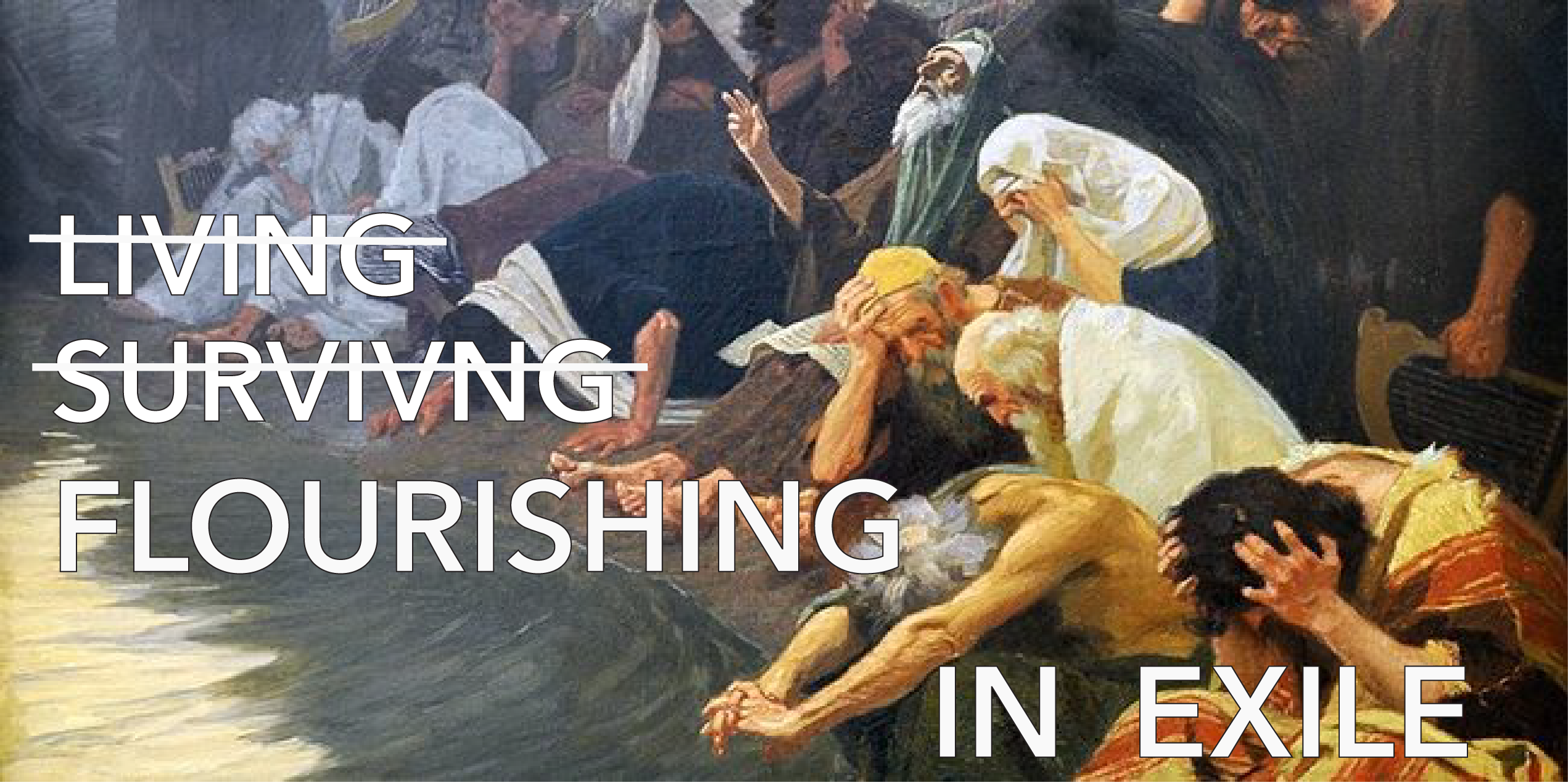
Psalm 137 NRSV | The Message Translation
I’ve heard it said that the stories of the Bible aren’t realistic. If anything, today’s Psalm contradicts that view, showing the deepest, realist aspects of humanity in the testimony of faith in the prayer we call Psalm 137.
We want to be at our best before God. Prayer, we think, means presenting
ourselves before God so that he will be pleased with us. We put on our “Sunday best” in our prayers. But when we pray the prayers of God’s people, the Psalms, we find that will not do. We must pray who we actually are, not who we think we should be. Here is a prayer that brings out not the best but the worst in us: vile, venomous, vicious hate. Can God handle our hate? (Eugene Peterson)
In life, in the psalms, hate, retribution, and justice are inextricably woven together. Here the poet-psalmist sings of the horror of the Exile: when the Israelite were threatened with genocide, cultural effacement and total annihilation. When the Babylonians conquered Jerusalem in 597 BCE they took captive and deported the elites of society: those that shaped, created and maintained the culture: the young, the priests, the politicians, the rich, the artists, the thinkers. Here along the shores of the great Euphrates and Tigris Rivers, which define the shape of Babylon, the Babylonian Captors, mock the poet, asking him/her to sing one of the great songs of Jerusalem, probably of the Temple praising God the Eternal – to entertain him in his work. It’d be like if a guard at Auschwitz asked a Jewish prisoner to dance a traditional wedding dance. Or like Hernan Cortés asking for an Aztec prisoner to come and sing him to sleep with a ballad sung at the birth of a child. The idea might make your blood boil or give you chills.
Texts like Ps 137 confront us with the tensions that humans feel between things like morality, compassion, and vengeance. Hearing and “getting” the Psalm can make us feel both sympathy and outrage. Likewise, when you hear of a life wasted on death row, a child working in a factory in the third world, of families choosing to sell their daughters into the sex trade in order to be able to eat, you may feel both sympathy and outrage. . . . Being human and being human with God, when it’s “real,” is often not pretty, and we learn a lot about ourselves from such texts if we pay attention.
What do we do with outrage, hate and a desire for justifying vengeance? Jesus taught nonviolent peace, saying “You have heard that it was said, ‘An eye for an eye and a tooth for a tooth.’ But I say to you, Do not resist an evildoer. But if anyone strikes you on the right cheek, turn the other also” (Matthew 5). Mahatma Gandhi is said to have mused on this teaching about vengeance summarizing “an eye for an eye makes the whole world blind.” Rev. Dr. ML King Jr talking about nonviolence said “Darkness cannot drive out darkness; only light can do that. Hate cannot drive out hate; only love can do that. Hate multiplies hate, violence multiplies violence, and toughness multiplies toughness in a descending spiral of destruction … The chain reaction of evil – hate begetting hate, wars producing more wars – must be broken, or we shall be plunged into the dark abyss of annihilation.” The psalmist wants to bash the brains of babies Babylonians against rocks. A horrible image, but is it that removed from what we feel, think, maybe even pray, in our own lives? Look at the hate and animosity stirred up in our culture these days around political and partisan issues, rooted in faith expressions, fears of cultural effacement, and demographic shifts.
Questions for the practice of Examen & Contemplation:
- What word, phrase or image grabs your attention?
- How does this psalm prayer trouble you?
- How do you identify with this prayer?
- How do you deal with hate, anger, desire for vengeance, or justice? How do you deal with such hungers in and through your faith?
- How does this psalm touch your (our) life today?
Download the Text Study Sheet we’ll use in our Vocabulary of Faith Class at @CAPCOakland HERE.